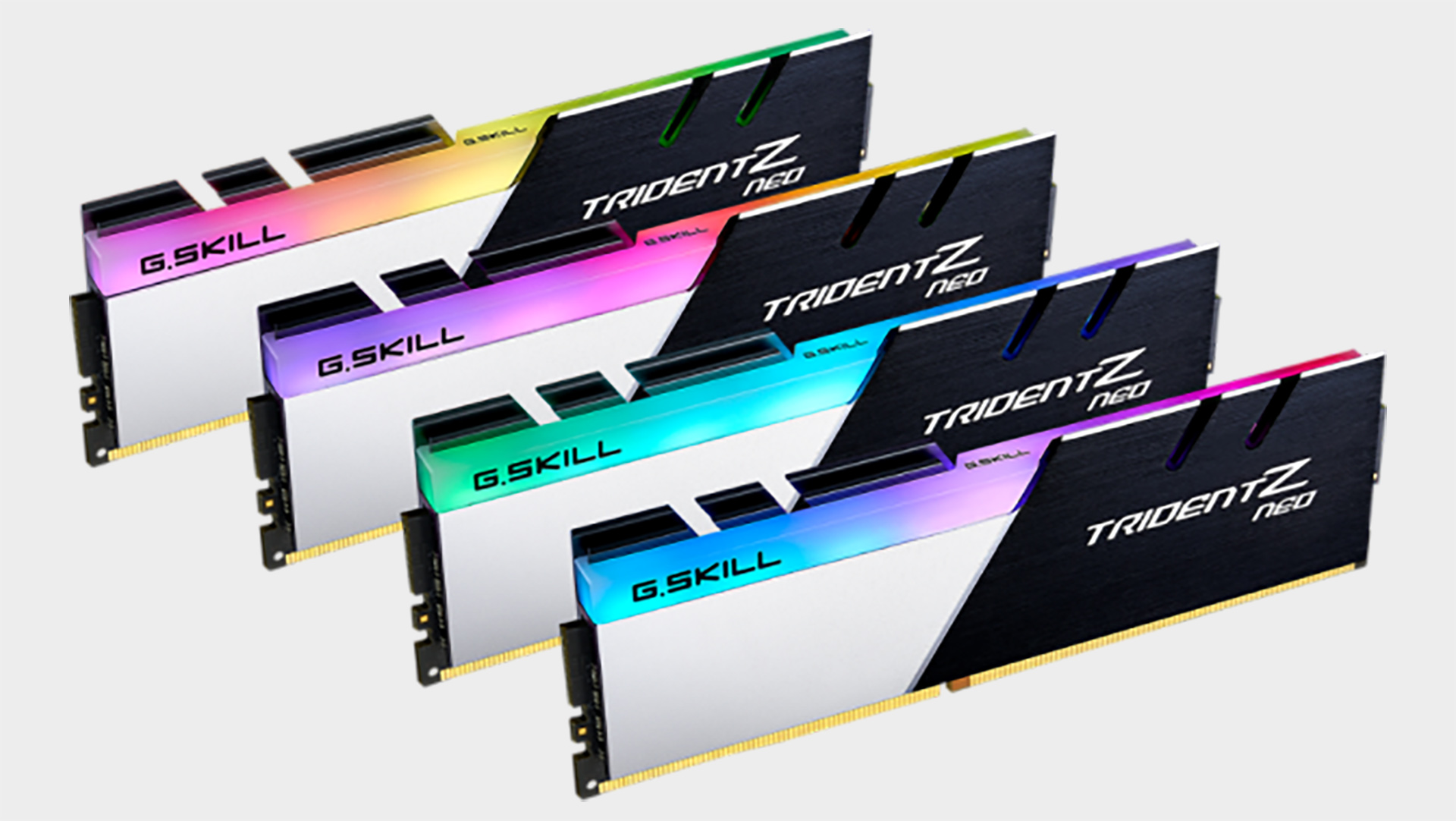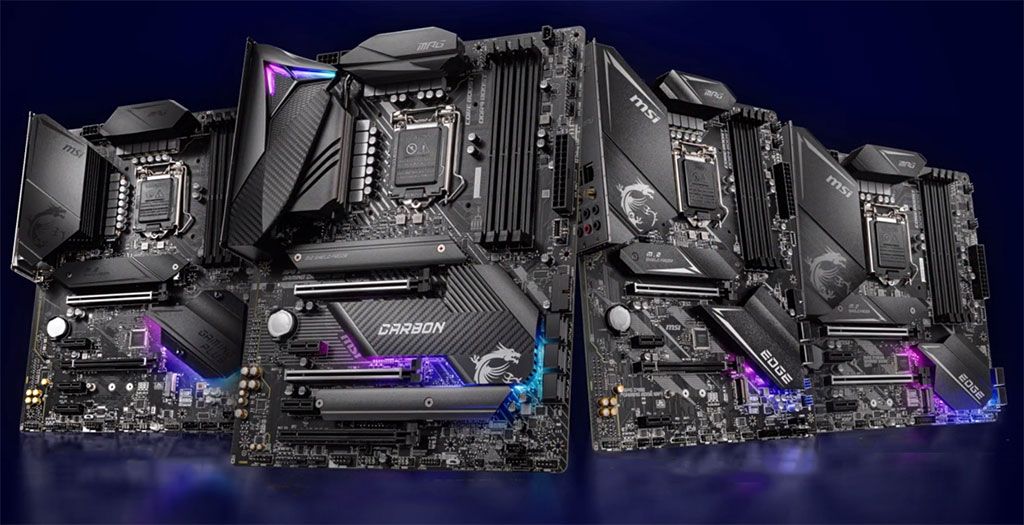G.Skill launches 4,000MHz RAM for lucky AMD Ryzen 5000 CPU owners
Or start building out your AMD gaming PC while you wait for stock to return.

G.Skill is updating its popular Trident Z Neo memory to 4,000MHz (effective) speeds, which places it right in the so-called 'sweet spot' for AMD Ryzen 5000 processors. With a bit of luck, you'll be running at the optimal 1:1 ratio across memory, Infinity Fabric, and memory controller in no time.
The new chips from AMD launched today, and we've already taken a long ol' look at the Ryzen 9 5900X to see what it's made of. It packs a punch in gaming, I can tell you that much, and it's already basically sold out everywhere. Ah, not so good.
At least you can prepare yourself for the chip's triumphant return by purchasing everything else you'll be needing for a great AMD gaming PC, including speedy low-latency RAM. G.Skill recently launched some 'extreme low-latency' memory across its various ranges, which features timings as low as CL14, but today we're looking at something that hits a decent balance of speed and latency for AMD's new Zen 3 chips.
G.Skill's Trident Z Neo memory will now be available in DDR4-4000 CL16 configurations, which will offer a decent blend of speed and latency for AMD Ryzen builds. G.Skill is rolling out in both 16GB and 32GB capacity kits. If you want 64GB, you'll have to settle for lower latencies at CL18.
All kits are built with Samsung B-die chips.

Best gaming motherboard: the best boards around
Best AMD motherboard: your new Ryzen's new home
AMD Zen 3 will support up to 4,000MHz memory at a 1:1 ratio. That last bit is the important part. That ratio applies to the memory clock (mclk), the memory controller clock (uclk), and Infinity Fabric clock (fclk), and it's best if you keep all operating at an even beat. Hence the desire to maintain a 1:1 ratio.
AMD uses Infinity Fabric as a communication bus between chiplets on its AMD Ryzen Zen 2 and Zen 3 CPUs.
Keep up to date with the most important stories and the best deals, as picked by the PC Gamer team.
But there is one drawback: Not all of AMD's latest chips are running at maximum Infinity Fabric speeds for the perfect 1:1 ratio, and you may find instability at 2,000MHz fclk—as did our Alan in his review. Further AGESA updates may help optimise, but there's no guarantee from AMD for all chips.
It's also possible to increase memory speeds beyond 4,000MHz on Ryzen, but you may actually find that latency increases cause worse performance in some cases as a result. You can find out more in our RAM speed for gaming deep-dive.
So with your memory in hand, you'll need a compatible AMD gaming motherboard. The B550 or X570 chipsets are your best bet, or you can wait until January, 2021 to hear about BIOS updates for 400-series boards.
Now just to get your hands on a chip. Good luck.

Jacob earned his first byline writing for his own tech blog. From there, he graduated to professionally breaking things as hardware writer at PCGamesN, and would go on to run the team as hardware editor. He joined PC Gamer's top staff as senior hardware editor before becoming managing editor of the hardware team, and you'll now find him reporting on the latest developments in the technology and gaming industries and testing the newest PC components.

